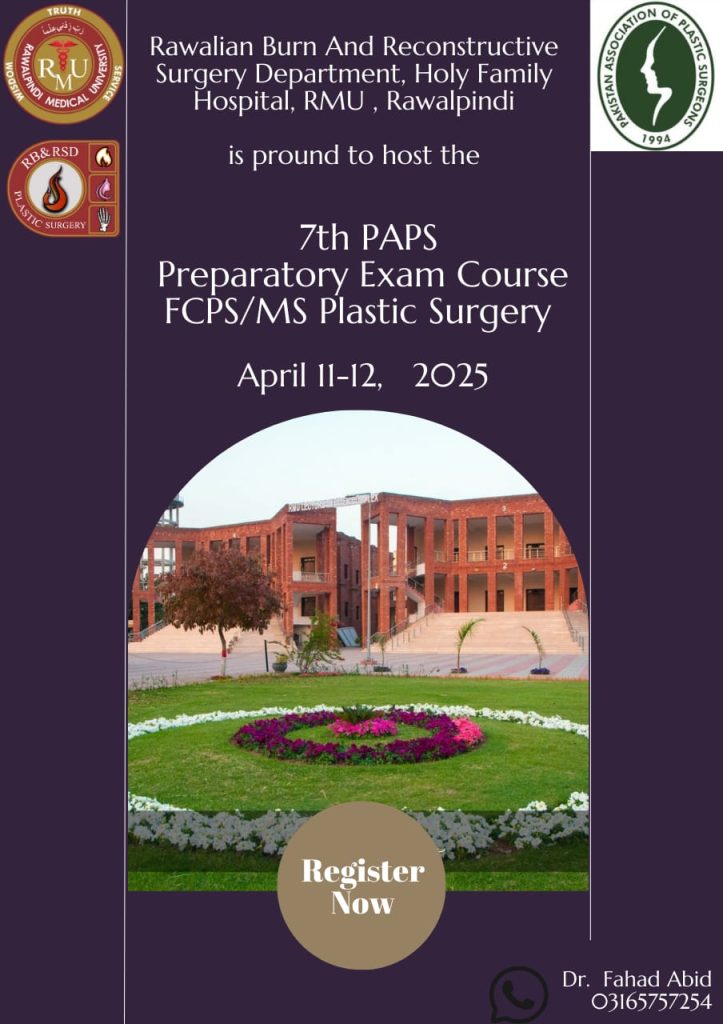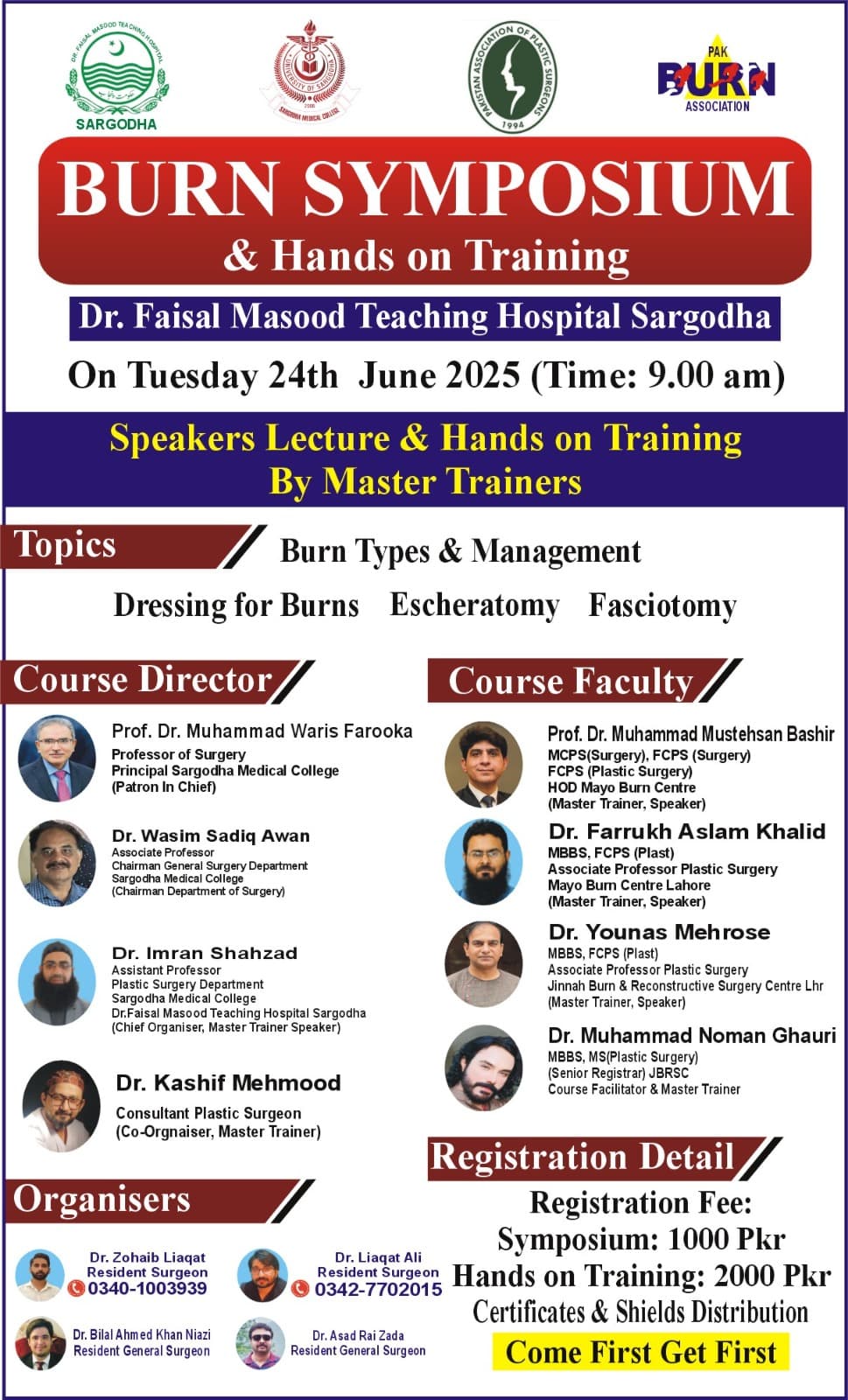Professional

PAPS and Rawalian Burn and Reconstructive Surgery Department, RMU is pleased to invite you to the 7th PAPS Preparatory Exam Course for FCPS/MS Plastic Surgery, taking place on April 11-12, 2025, at the Rawalian Burn and Reconstructive Surgery Department, Holy Family Hospital, RMU, Rawalpindi.
This intensive preparatory course is designed to provide comprehensive exam-oriented training, including:
✅ Mock TOACS exam sessions
✅ Mock Long and short case discussions
✅ Individual feedback from expert faculty
✅ Panel discussions with senior examiners
This is an excellent opportunity to refine your exam strategies, receive personalized feedback, and enhance your confidence before the final assessment.
📍 Venue: Holy Family Hospital, RMU, Rawalpindi
📅 Dates: April 11-12, 2025
🔗 Register Now!
For further details and registration, please contact Dr. Fahad Abid at 03165757254.


